Zied’s Guiding Principles: Elisa Shares Her Story
Jul 7, 2012
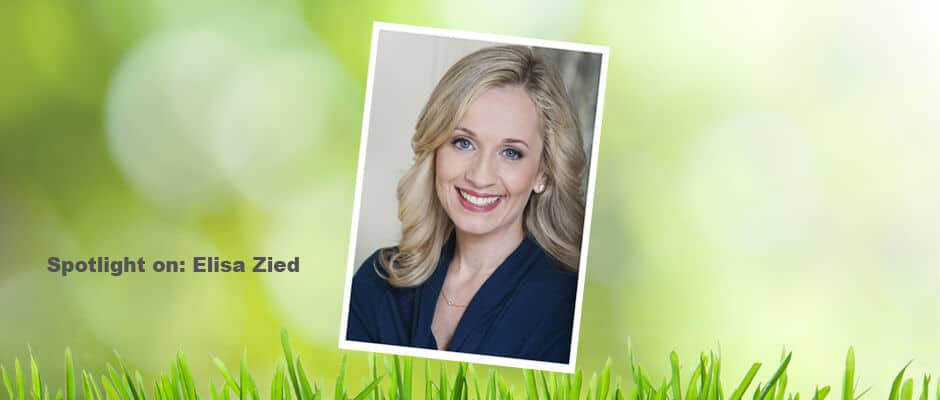
Spotlight On: Elisa Zied
Prologue:
I had the pleasure of meeting Elisa at a nutrition conference a few months ago. She had written a blog about giving up diet cola and I was dying to ask her about it since I have similar “issues.” I had so much fun talking with her that I decided to interview her and find out more about her media experience and her books. You’ll be able to feel her positive, upbeat personality come through as she tells her story.
MELISSA: Elisa, how long have you been an RD and when did you write your first book?
ELISA: I have been an RD since 1996. My first book, So What Can I Eat?! was published by Wiley in 2006. My second book, Feed Your Family Right!, was also published by Wiley in 2007. My most recent book, Nutrition At Your Fingertips, published by Alpha Books (Penguin), came out in 2009. I’m currently working on a new book aimed at the 40-something woman that will be published by Harlequin Non Fiction in March, 2014.
MELISSA: How long have you been doing TV interviews and how did you get started doing TV?
ELISA: I’ve been doing TV segments for more than 15 years! While in graduate school at NYU, studying for a masters degree in clinical nutrition, I took some commercial acting classes just for fun. I knew I didn’t have acting chops, but had fun challenging myself by performing scenes in front of others—even if I had little talent. One day at the gym, I randomly started talking to a woman who happened to be a producer at the Food Network. I mentioned that I’d love to come on the network and do some nutrition segments, and she asked me to send her my press kit. Having no real experience except for a few segments I did on some relatively unknown cable TV shows, I whipped that press kit together so fast (here’s a clear example of how one fakes it ’til they make it). The producer passed my press kit on to another producer friend, and the next thing I knew, I was on the Food Network. I did several live segments on a show called Recipe for Health, and it was so much fun! I was definitely bitten by the TV bug! Other opportunities began to present themselves when the producer I worked with gave my name to another producer from Fox. One night at dinner with my brother-in-law and his family, I met a friend of theirs who happened to be a producer for the CBS Early Show. He passed my information on which led to three years of regular appearances on the show, which was an incredible experience. Although I have pitched a few segments to producers over the years, most of the opportunities I’ve had were generated by meeting producers in person or by word of mouth.
MELISSA: Well, I guess there are sometimes extra benefits to hitting the gym! Tell me a little bit about your nutrition philosophy – what are you known for? Did this influence your book topics?
ELISA: I believe I’m known for no-nonsense, real-world nutrition. Through all my work, I pride myself on trying to meet people where they are instead of telling them what to do—or to do things that may not be realistic or maintainable for them. I have never claimed to be a perfect eater. I was raised on lots of home-cooked meals that included meat, fish, poultry and potatoes, vegetables and fruit, and pasta. But growing up, I also ate my fair share of Burger King, Doritos, and Entenmann’s chocolate chip cookies. My overweight mother tried her best to provide healthy meals for us, but she was also worried that my brother and I would develop her food issues and be overweight. So there were a lot of mixed messages, and I grew up consumed by my weight. I constantly dieted (often with my mother) and was a little overweight all of high school and early college.
MELISSA: How interesting. When you said “consumed by my weight” it made me think “that would be a really good title for a book or a blog!” So how did you handle those mixed messages and what type of “dieting” did you do?
ELISA: By cutting portions and increasing my physical activity, I eventually began to lose weight. I’m proud to say that I have maintained a weight loss of more than 30 pounds since my high weight in high school.
MELISSA: So your personal experiences really do come through in your nutrition philosophy.
ELISA: My nutrition philosophy is constantly evolving. I don’t believe people need to overly restrict or deprive themselves to lose weight and keep it off or to be healthier. But you do need to reduce portions and increase your daily physical activity, and also reduce the time you spend sitting and being sedentary. Most importantly, you need to change your surrounding environment to support more healthful habits. The key is to make changes in your food and fitness behaviors that you can maintain and to tweak those to accommodate changes in your life over the long haul. It’s all about making changes for life that are healthful and that work in your unique circumstances.
My philosophy about nutrition and life certainly come across in my first two books, and my evolving knowledge about nutrition, diet, and health, and the experiences I’ve had, and continue to have, working with clients and consumers, and raising my own family will certainly play out in my next book geared to the 40-something woman.
MELISSA: Writing even one book is impressive – but four is really incredible. What is your motivation for writing books?
Elisa: I LOVE to write….I seriously love the challenge of it and love all aspects of it. From writing the outline to scouring through and translating studies about food, fitness and nutrition, I find book writing to be labor-intensive but so fulfilling. I also admit that I love when people tell me that one of my books sits on their kitchen counter with stains on it, or that it’s changed their life. I love that I can use books as effective tools to not only educate consumers about how to make more healthful food and fitness choices that are realistic and fit into their lives, but to inspire and motivate them to sustain those changes.
I truly believe that we all want to eat better, live better, and feed our families better, and I try to help motivate those who need a little push, or need some guidance to work towards achieving their weight and health goals. My goal is for my next book to be a bestseller. If I achieve that goal, it means that my messages are being heard by, and resonate with, many women—that certainly motivates me to continue writing books.
MELISSA: How wonderful it would be to see an RD have a bestseller! So, if an RD wants to write books like you, what skills or experiences do they need to cultivate?
ELISA: It’s always great to have a degree in journalism. I actually thought of going back to graduate school to pursue that but decided I rather continue doing what I’m doing while raising my two sons, ages 14 and 10. Taking basic writing courses can certainly help, as can working with great editors. I think the best way to learn to write is to write. At first, I wrote for some nutrition newsletters, and eventually got my first paid gig (with help from a dietitian friend who wrote for the publication) to write for Environmental Nutrition Newsletter. I worked with terrific editors and wrote for them for years. I have since been a regular contributor and done freelance work for several magazines (including Parents, Redbook, and Seventeen) and web sites, including msnbc.com. Having my articles and books edited so well helps me to further develop my writing skills. I also created my own blog called The ZIED GUIDE, and plan to write more original, timely pieces for it. I’ve begun to tap into my creative writing voice, and look forward to further developing my writing skills in years to come.
MELISSA: Well, clearly you enjoy writing and are good at it as well. But what comes naturally for you and what do you have to work hard
on when it comes to writing books (or doing TV)?
ELISA: What comes naturally? I’m not really sure. I’m one of those people who has to spend a lot of time gathering and researching data before I do any actual writing. I probably spend more time than most when I write even short articles. For TV segments, you usually have little prep time—especially for live TV. For those, I take what little time I have and think about the 2-3 key points I want to make. Writing and doing TV segments have definitely become easier over the last few years, but I continually try to improve my skills since there’s always room to learn even more, if you’re open to it!
MELISSA: I couldn’t agree more – I still learn something new every time I do a TV segment. Actually, I usually learn several things every time. If you could share your top 3 tips for other RDs who want to write a book, what would they be?
ELISA:
1. Decide why you want to write a book. Do you love writing? Have you had a book idea that you’ve been dying to get down on paper? Or do you want the book to be a marketing tool for you and your private practice or other business? I write books out of the love of writing and sharing my ideas for how to live a better, more healthful life. But I’d be remiss if I didn’t say having three books under my belt has certainly opened many doors when it comes to writing, TV, spokesperson and consulting opportunities.
2. Find an agent. You can do this by reading acknowledgements sections in nutrition/diet/health books you like. You can also ask friends who have written books to put in a good word for you with their agents. Having a good agent can certainly help connect you to the right publisher for your book.
3. Have realistic expectations. It takes a lot of time to not only write a book, but to do the edits. But it takes even more time to promote a book—I think that can literally be a full time job. If you don’t spend the time promoting your book by doing public speaking engagements and TV/radio/web site interviews, it’s going to be even tougher to get your books in the eyes of consumers interested in what you have to say. Most publishers leave the bulk of book promotion to their authors, and it can get quite costly to get even modest help when it comes to book promotion. You also have to be realistic about the costs associated with writing books—especially if you include tested, analyzed recipes. Most authors pay these expenses out of pocket or solicit friends to help create, test, or analyze recipes.
MELISSA: So, an RD with communications/media skills has a clear advantage when it comes time to promote their book! And what is your advice for other RDs who want to do TV interviews?
ELISA: It’s important to present yourself as professionally as possible online. Be sure to have a current headshot as well as some videos or a highlight reel that shows you on camera, giving a presentation, doing an interview, or simply giving tips. If you love to cook, have someone tape you cooking. Of course having great lighting and makeup will make your tape even better, which can get very expensive. But try to
give yourself a budget for presenting yourself to producers. Once you have something to present, start by contacting local news and morning shows. Ask them how they like to be pitched and develop timely topic ideas with a few key messages. You can check out the media guide created by The Academy of Nutrition and Dietetics—it offers a lot of great details and is a terrific resource.
MELISSA: I agree – that’s why I decided that would be the first resource I shared on this blog! Elisa, you’ve shared so much with us already, but please share one experience that either taught you a lot or you think would help other RDs.
ELISA: The one mistake I’ve always made (and am trying to change as we speak) has been selling myself short. I do have confidence in what I do, but have not been the most savvy business person when it comes to my writing or TV work. I started Zied Health Communications, LLC in 2010 and although I’ve been quite busy writing and doing spokesperson work, I waited until now to hire my first employee to serve as a VP in my company. It is my goal that having full time help can afford me the luxury of being to accept more work since I’ll have help staying organized and doing all the technical things related to my work and running the business. No one will ever tweet for me, post on facebook for me, or write as me…but they can assist me and help me be more productive. So my best advice is to value the work you do and budget to have help when you need it to achieve your professional goals.
Epilogue:
Thanks Elisa! It sounds like your personality, passion and positive messages are really making an impression. Thank you for so generously sharing such sage advice with us! To see Elisa in action on TV – check out her “Sizzle Reel!” Let us know what comments or thoughts you had about this interview, too. We want to hear from you!
Did you enjoy this interview? Click here to read more!
Related
1 Comments
Leave a Comment
WELCOME TO MY BLOG
Thank you for stopping by!
I’m the Guilt-Free RD – “Because food shouldn’t make you feel bad!™”. So, on my Food for Thought blog I’m sharing the secret ingredients to enjoy your food with health in mind.
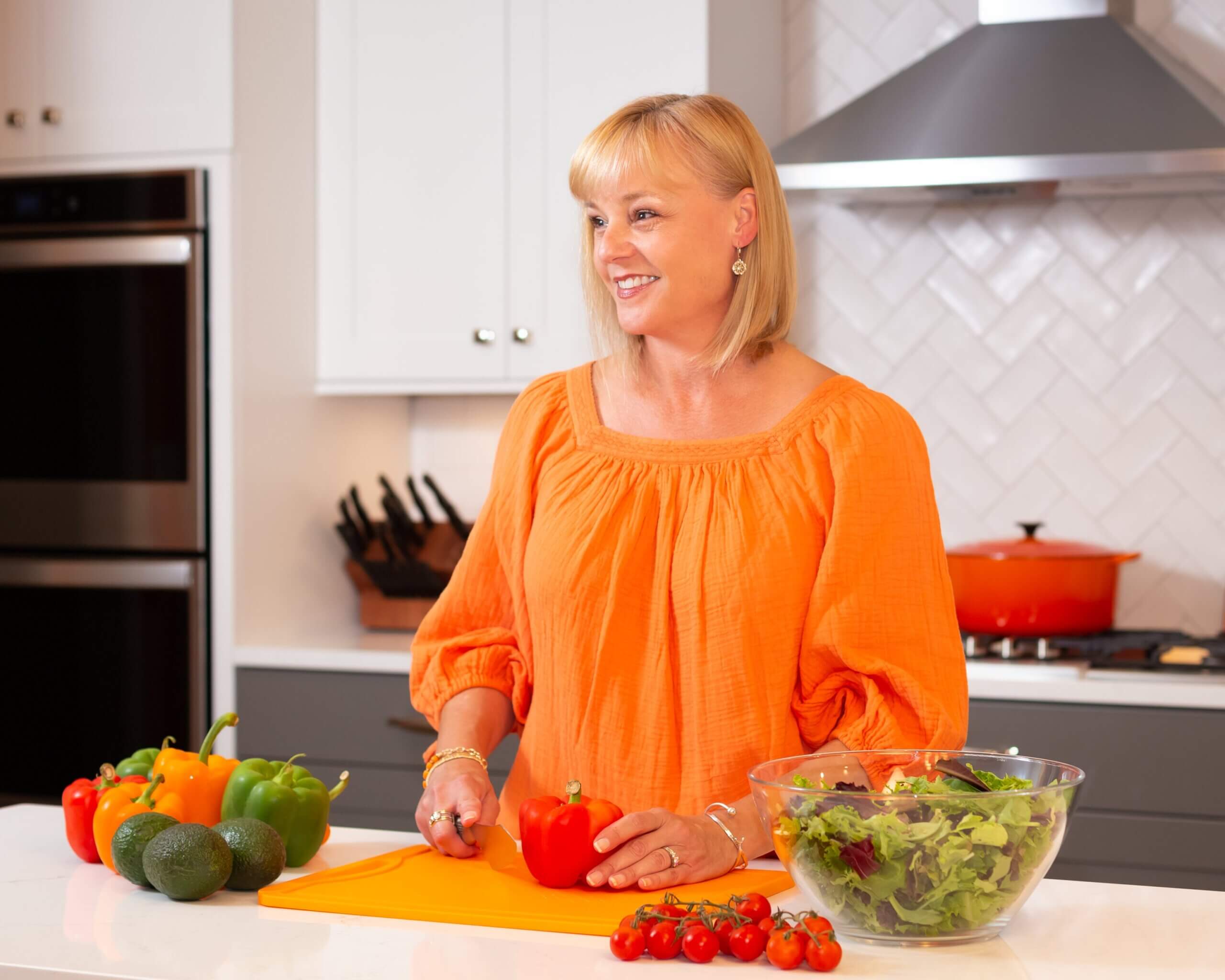
Subscribe!
Sign up for my monthly newsletter and episode eblasts so you never miss an update!

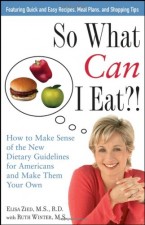
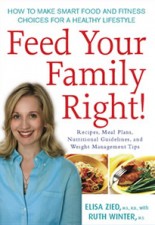
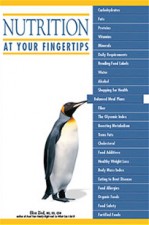
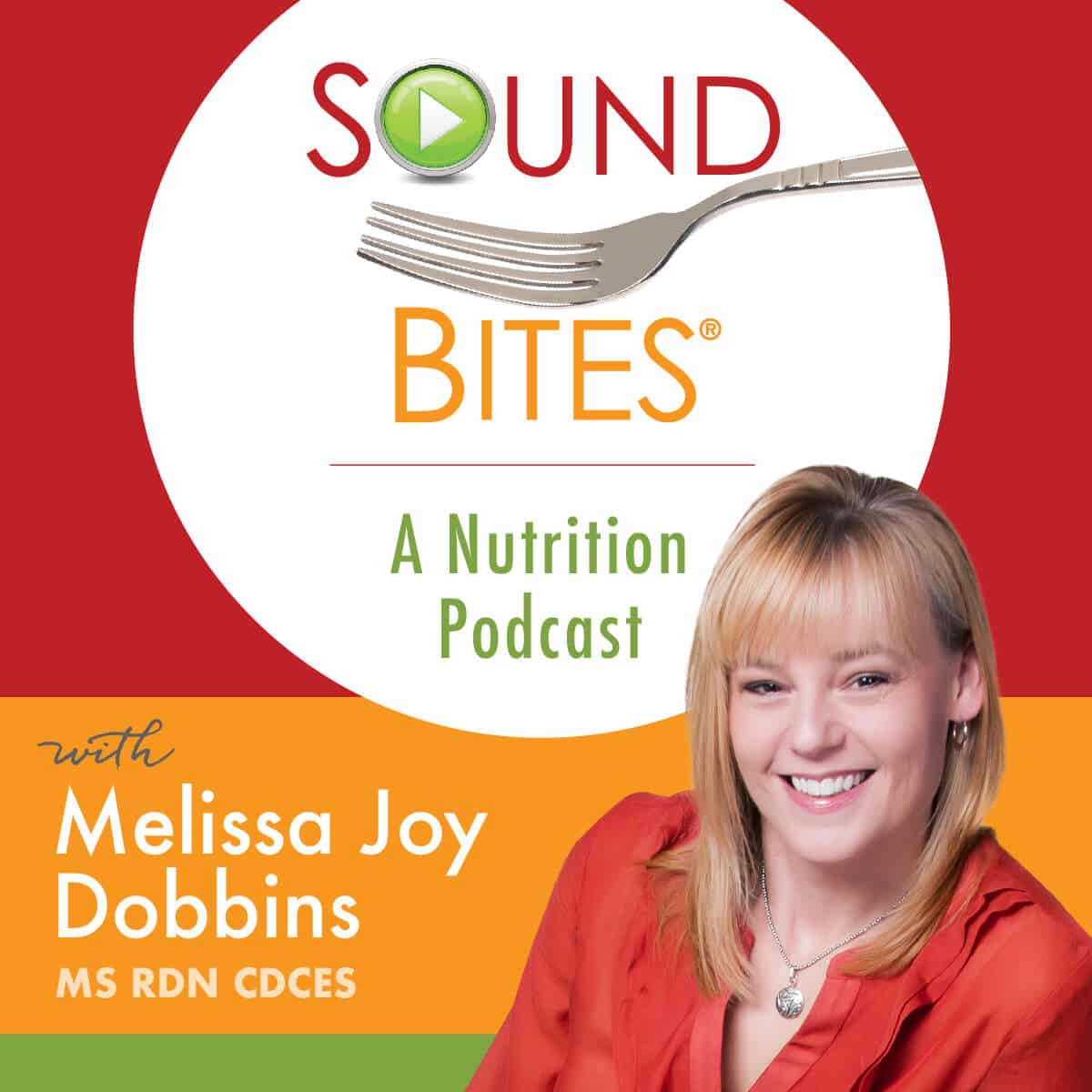
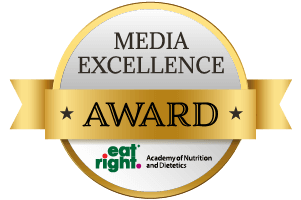





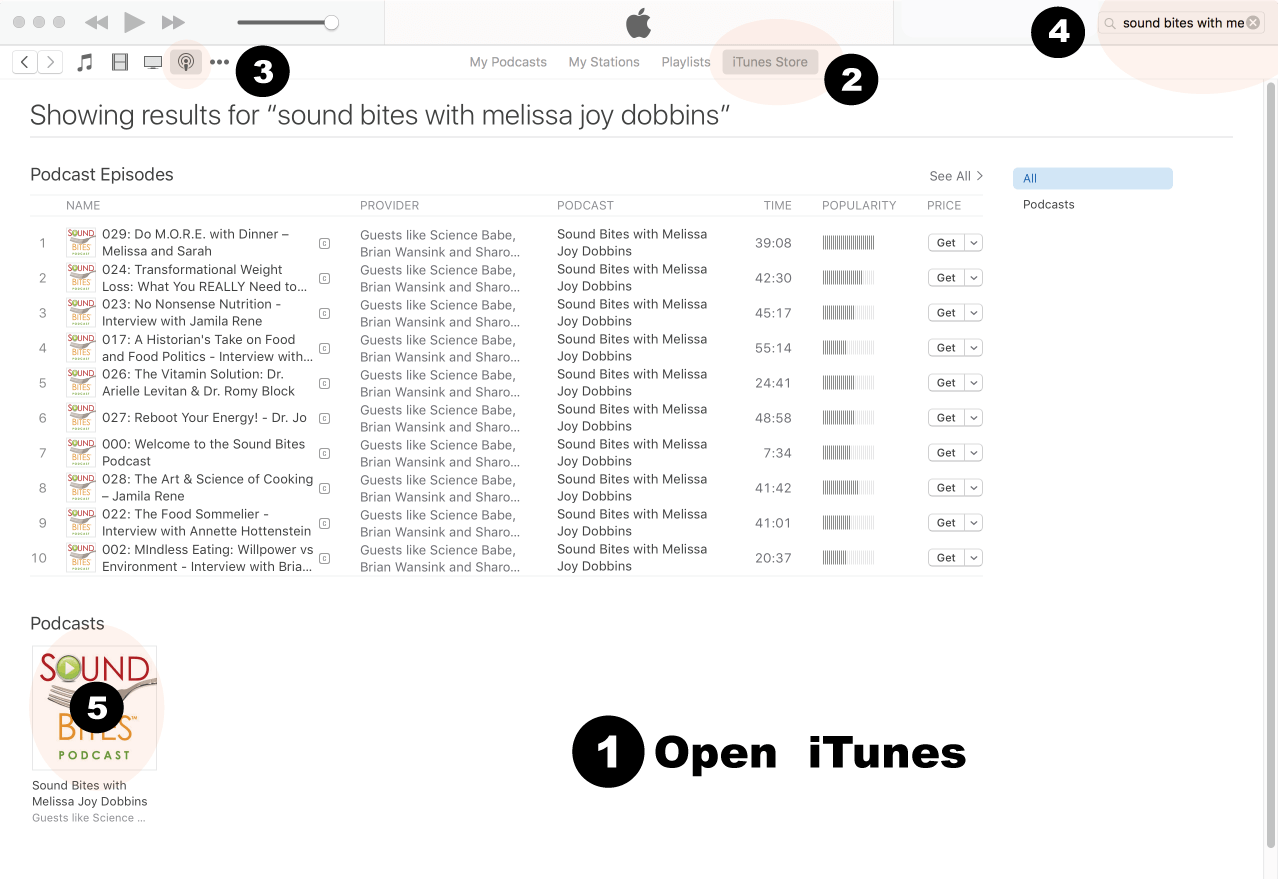
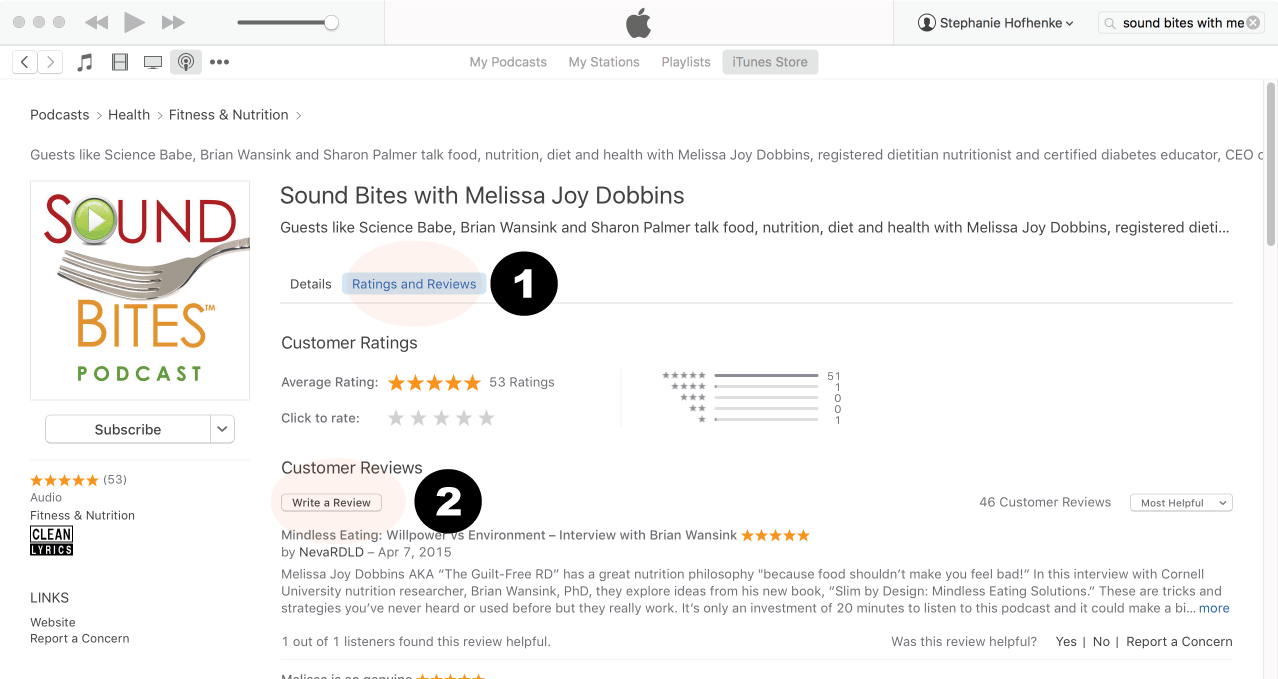
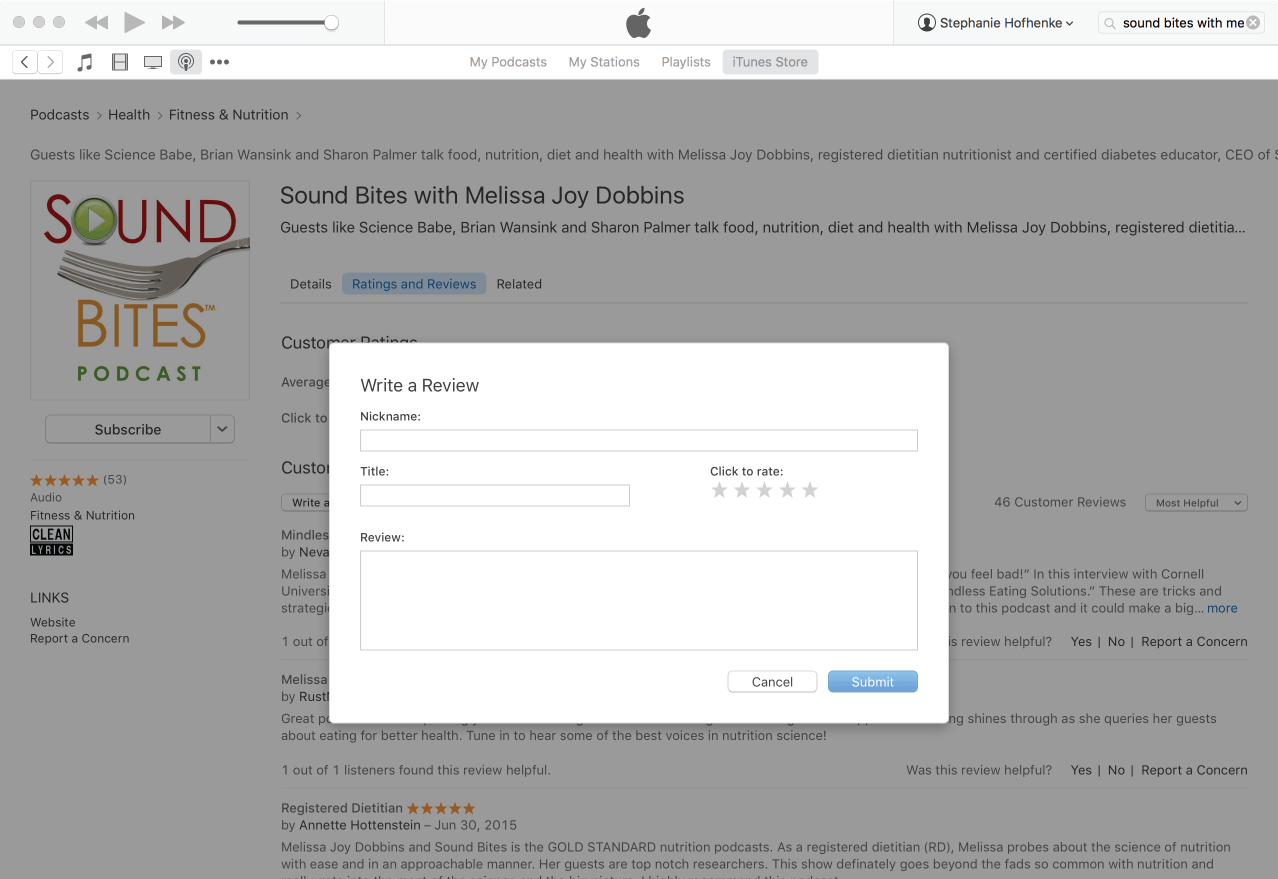







Real-world nutrition is the only way to go, thanks for the applicable & livable information! Maintaining the behaviors is definitely the hardest part when we’re confronted by so many options on a daily basis.